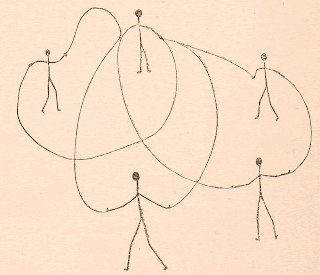- character, emancipation, equality -
"I felt that God did not create us to be the slaves of our brothers, and I bent all my effort to extricate myself from the grip that was choking poor workers... At the age of twenty-three I felt strong enough to effect my deliverance, sensing that the burden I bore was too heavy on me... At that point I had invented a new type of loom that permitted me to manufacture the most beautiful fabrics (shawls). I had enlisted a collaborator to handle the equipment setup. He was a young man who suffered as I did, and who also desired greatly to emancipate himself... We realized that the sufferings we shared were those of our brothers, the common laborers, as well. And I, for my part, had dreams of emancipating a certain number of them with us. (Claude David, worker, XIX century, quotation from Jacques Ranciere: Night of labour)
Emancipation is a broad term used to describe various efforts to obtain political rights or equality, often for a specifically disenfranchised group. Emancipation stems from "ex manus capere": Take out of the hand. Karl Marx understands it as "equal status of individual citizens in relation to the state, equality before the law, regardless of religion, property, or other “private” characteristics of individual people."
However, "the very same word, emancipation, is used to denote the advancement of the individual worker who sets up on his own and the deliverance of the oppressed proletariat."
- equality -
- visualizing the equality -
Visualizing equality is difficult. But late in the nineteenth century, the engineer and political economist, Fleeming Jenkin, took great pains to confront the critics of economics visually. He drew a picture of exchange in which the participants are faceless: there is no difference in competence to be inferred from physiognomical differences. Instead, in this delicate, dance-like drawing, the order is circular, each actor in the drama of markets has his or her own goals, and these private goals are revealed in the market order, the spontaneous order.
Parallel between Jenkin visualisation of equality and Matisse painting La danse:
When Lenin came to power after the Revolution, he confiscated Shchukin's collection of Matisse paintings because they so clearly demonstrated the "decadence and corruption" of capitalism. Matisse once said, "I'm ready to paint as many frescoes as you like, only remember, it's no good asking me to paint hammers and sickles all day long."


No comments:
Post a Comment